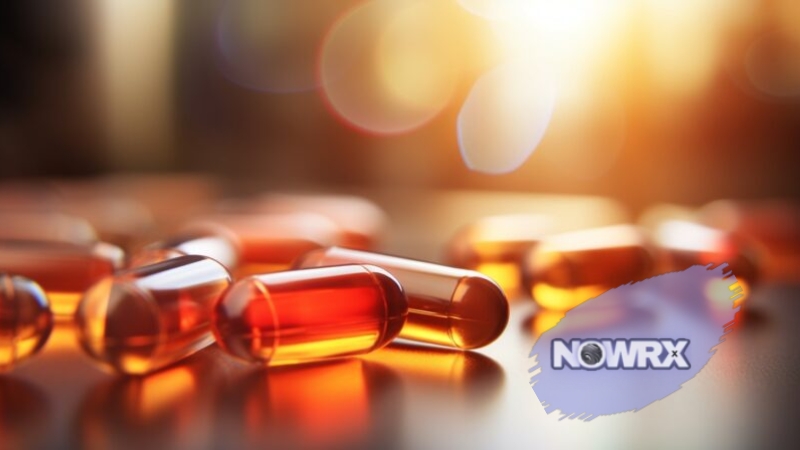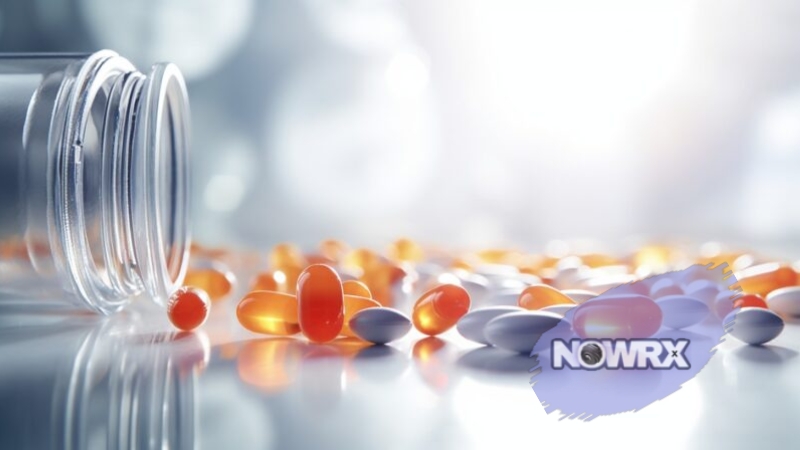Many people have wondered, “Can you drink alcohol while taking antibiotics?” Understandably so.
An infection can strike at the most inconvenient times, i.e., just before the holidays, when you have an event that weekend, or any other occasion where you might want to consume an alcoholic beverage.
Let’s take a look at some of the potential interactions between alcohol and antibiotics.
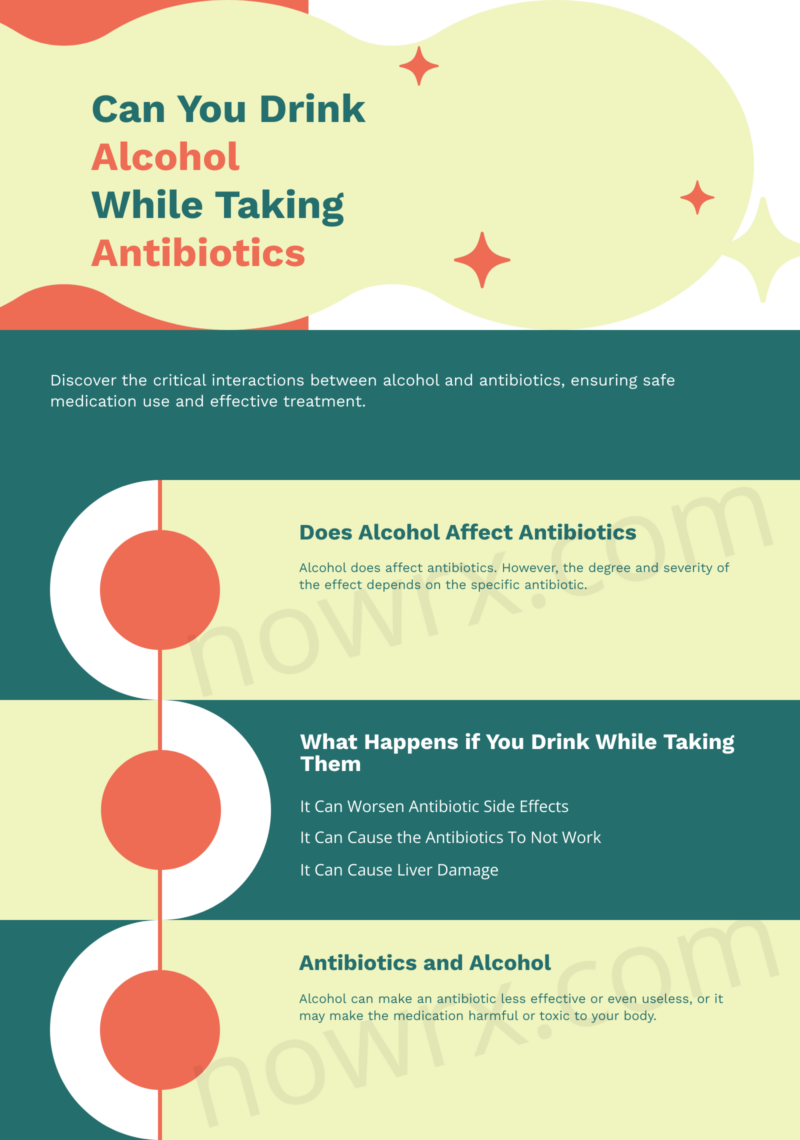
Does Alcohol Affect Antibiotics
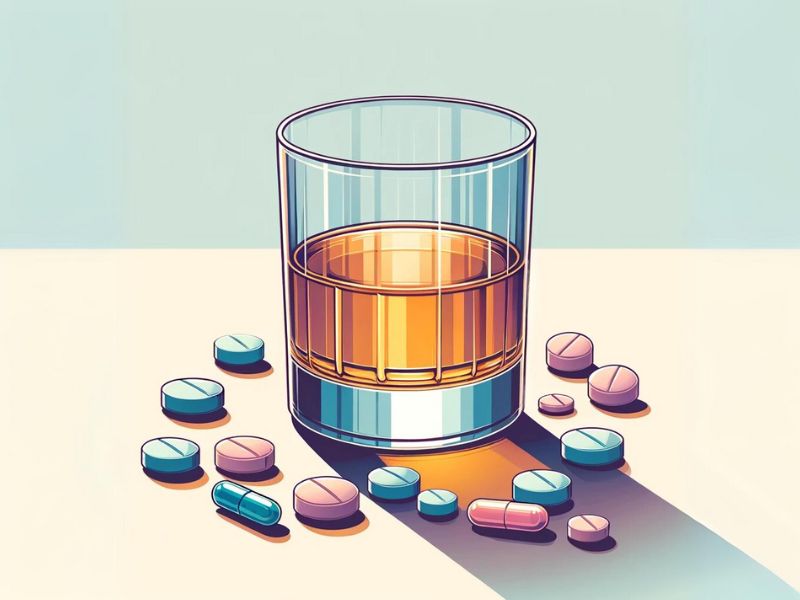
Alcohol does affect antibiotics. However, the degree and severity of the effect depends on the specific antibiotic.
If you’re still taking antibiotics, though, even if you’ve recovered from illness, it’s important to be wary of consuming alcohol. Alcohol not only affects your body’s ability to heal[1] but can also interact poorly with certain medications, leading to uncomfortable and sometimes severe side effects.
In some cases[2], alcohol can render the antibiotics ineffective, and in other cases, it can lead to harmful side effects. Side effects may include gastrointestinal (GI) issues, high blood pressure, headaches, drowsiness, dizziness, and irregular heartbeat.
However, not all antibiotics will interact poorly with alcohol. Research suggests[3] that there are many antibiotics that have no significant interactions with alcohol.
Because alcohol affects antibiotics differently, it’s important to talk to your doctor or pharmacist before consuming alcohol while on antibiotics.
What Happens if You Drink While Taking Them
While it’s best to avoid alcohol consumption when taking any antibiotics, there are some antibiotics, in particular, that, when consumed with alcohol, pose serious risks.
These include:
- Metronidazole
- Tinidazole
- Griseofulvin
- Ketoconazole
- Isoniazid
- Cycloserine
- Erythromycin
- Pyrazinamide
- Trimethoprim
If taking any of these antibiotics, it’s critical to avoid alcohol, not only for the duration of treatment but also, in some cases, for 2-3 days after finishing treatment[3] (metronidazole and tinidazole). This will help ensure the antibiotics are most effective and that you avoid unpleasant and potentially harmful side effects.
Here’s what can happen if you drink alcohol while taking certain antibiotics:
1. It Can Worsen Antibiotic Side Effects
Mixing alcohol with certain antibiotics can amplify the side effects[2] of drinking alcohol or taking antibiotics alone. Common side effects that can worsen when combining antibiotics and alcohol include:
- Nausea
- Vomiting
- Headaches
- Drowsiness
- Loss of coordination
These side effects are often referred to as a disulfiram-like reaction[4]. Disulfiram is an oral drug used for treating alcoholism that causes unpleasant symptoms when alcohol is consumed. This includes nausea, vomiting, flushing, dizziness, throbbing headache, and chest and abdominal discomfort.
When combined with certain antibiotics, including cephalosporins, metronidazole, sulphonamides, and isoniazid, alcohol consumption can lead to this reaction. This reaction can also occur when taking antibiotics with alcohol-containing medications, i.e., liquid cold and flu medicines.
Other side effects, like drowsiness and loss of coordination, can also lead to serious falls and injuries, especially in elderly people. For these reasons, talk to your doctor to learn if alcohol can cause side effects such as these when taking antibiotics.
2. It Can Cause the Antibiotics To Not Work
Alcohol can make[2] an antibiotic less effective or even useless, which can interfere with your recovery. This is the case with erythromycin[3], a common antibiotic used to treat various infections. Additionally, doxycycline[3] may have reduced efficacy in patients with chronic alcoholism.
In order to ensure the full efficacy of the antibiotics you’re taking and help your body heal from infection, avoid consuming alcohol with erythromycin. Additionally, discuss the impact of alcohol on any other antibiotic you may take with your doctor to be aware of the potential side effects.
3. It Can Cause Liver Damage
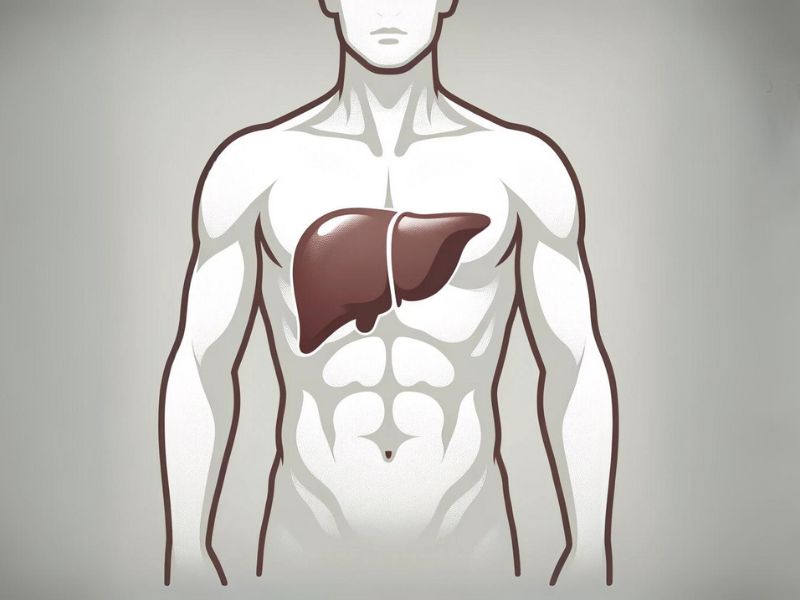
In and of itself, excessive alcohol use can lead to liver disease, but even small amounts of alcohol can damage the liver when combined with certain antibiotics.
Isoniazid, ketoconazole, ethionamide, and fluconazole are just a few antibiotics that may cause liver damage[3]. There is a risk of liver toxicity when taking these medications even without alcohol, but when combined with alcohol, the risk is much greater. Liver damage isn’t the only side effect of combining these antibiotics and alcohol, either. Nausea, vomiting, headache, and mood changes may also occur[3].
For these reasons, it’s critical to avoid alcohol consumption when taking these medications.
Antibiotics and Alcohol
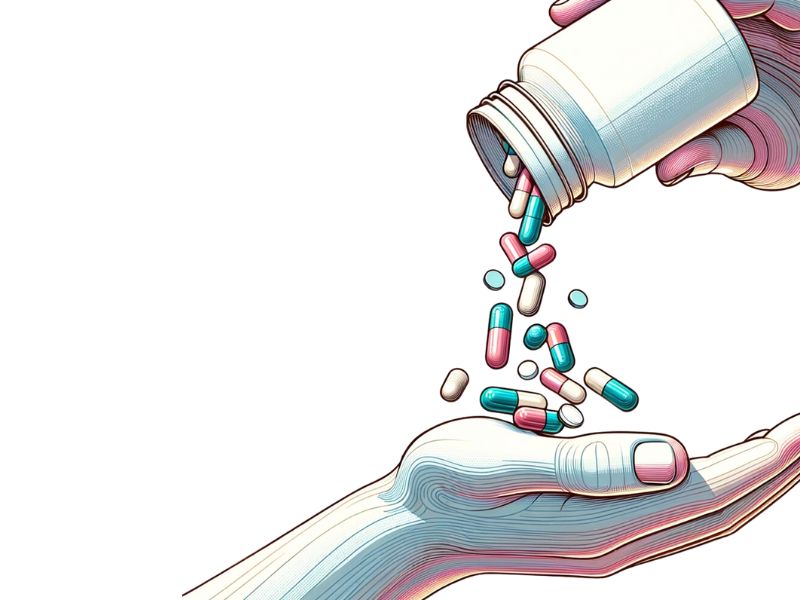
Alcohol can make[2] an antibiotic less effective or even useless, or it may make the medication harmful or toxic to your body.
But, while some antibiotics can cause severe side effects when taken with alcohol, others do not. If you have a question about the antibiotic you have been prescribed, don’t hesitate to reach out to your pharmacist.
They can help you learn of any potentially harmful interactions between your antibiotics and alcohol or other substances.
The Bottom Line
Understanding the interaction between alcohol and antibiotics is crucial for effective treatment and avoiding adverse effects.
Consult your healthcare provider for personalized advice.
References:
1. Alcohol Res: Alcohol and the Immune System – https://www.ncbi.nlm.nih.gov/pmc/articles/PMC4590612/
2. National Institute on Alcohol and Alcoholism: Harmful Interactions Mixing Alcohol With Medicines – https://www.niaaa.nih.gov/publications/brochures-and-fact-sheets/harmful-interactions-mixing-alcohol-with-medicines
3. Antimicrob Agents Chemother: Fact versus Fiction: a Review of the Evidence behind Alcohol and Antibiotic Interactions – https://www.ncbi.nlm.nih.gov/pmc/articles/PMC7038249/#B5
4. J Pediatr Pharmacol Ther: Disulfiram-like Reaction With Metronidazole: An Unsuspected Culprit – https://www.ncbi.nlm.nih.gov/pmc/articles/PMC6782120/
Drake Holloway, 45, is a pharmacist and freelance blog writer for NowRx.com. He uses his professional background to provide information and opinions on diverse subjects to those seeking guidance.
Related Posts:
- Side Effects of Taking Birth Control Pill While Pregnant
- Do Antibiotics Make You Tired? 4 Ways To Combat…
- Taking Vitamins While Fasting - What You Need to Know
- Losartan Side Effects, Uses – What You Need to Know
- Can Someone Else Pick Up Your Prescription Medication
- How Can I Reduce My Prescription Costs - 6 Effective Methods










